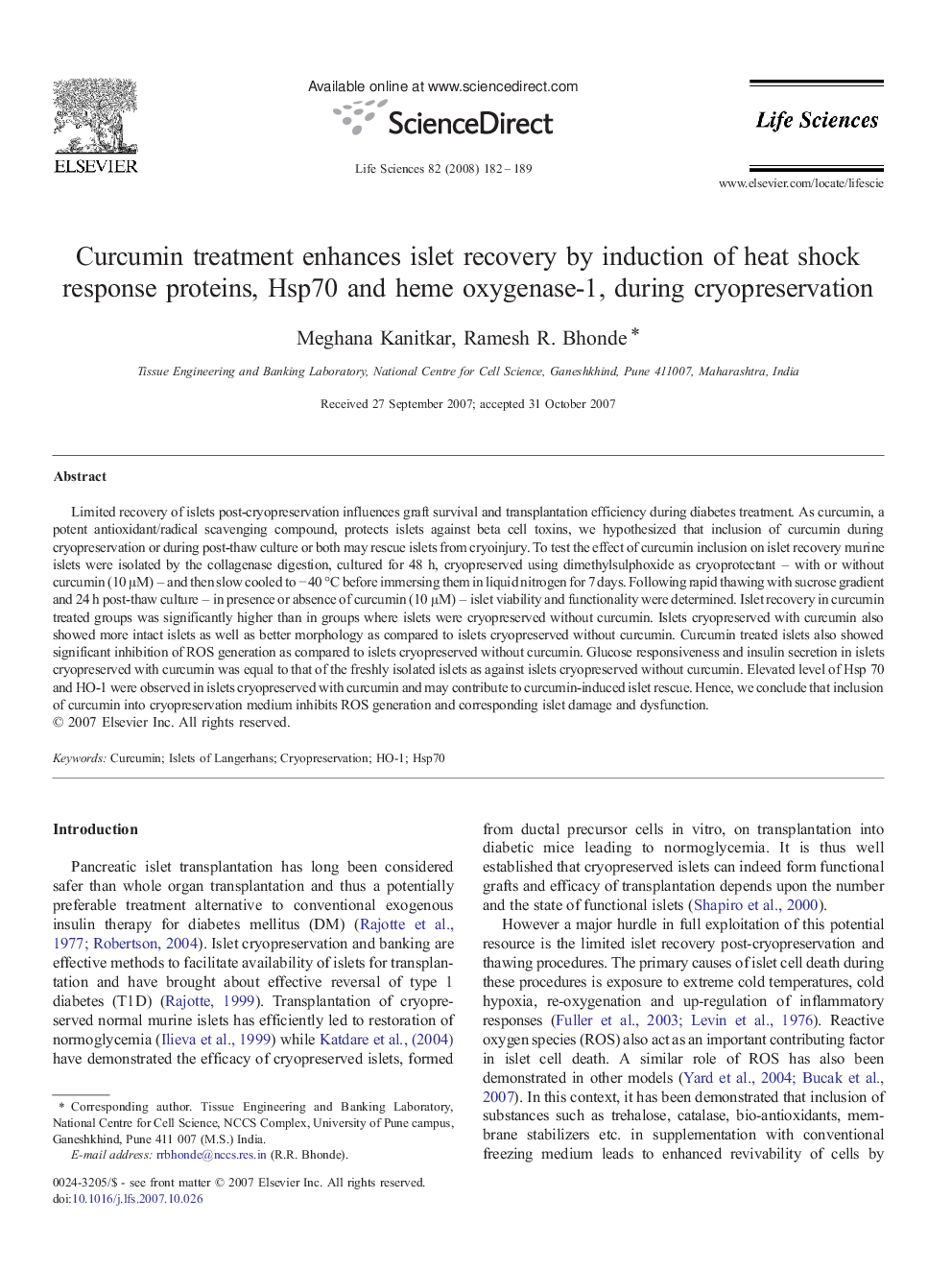| Article ID | Journal | Published Year | Pages | File Type |
|---|---|---|---|---|
| 2552922 | Life Sciences | 2008 | 8 Pages |
Limited recovery of islets post-cryopreservation influences graft survival and transplantation efficiency during diabetes treatment. As curcumin, a potent antioxidant/radical scavenging compound, protects islets against beta cell toxins, we hypothesized that inclusion of curcumin during cryopreservation or during post-thaw culture or both may rescue islets from cryoinjury. To test the effect of curcumin inclusion on islet recovery murine islets were isolated by the collagenase digestion, cultured for 48 h, cryopreserved using dimethylsulphoxide as cryoprotectant – with or without curcumin (10 μM) – and then slow cooled to − 40 °C before immersing them in liquid nitrogen for 7 days. Following rapid thawing with sucrose gradient and 24 h post-thaw culture – in presence or absence of curcumin (10 μM) – islet viability and functionality were determined. Islet recovery in curcumin treated groups was significantly higher than in groups where islets were cryopreserved without curcumin. Islets cryopreserved with curcumin also showed more intact islets as well as better morphology as compared to islets cryopreserved without curcumin. Curcumin treated islets also showed significant inhibition of ROS generation as compared to islets cryopreserved without curcumin. Glucose responsiveness and insulin secretion in islets cryopreserved with curcumin was equal to that of the freshly isolated islets as against islets cryopreserved without curcumin. Elevated level of Hsp 70 and HO-1 were observed in islets cryopreserved with curcumin and may contribute to curcumin-induced islet rescue. Hence, we conclude that inclusion of curcumin into cryopreservation medium inhibits ROS generation and corresponding islet damage and dysfunction.
